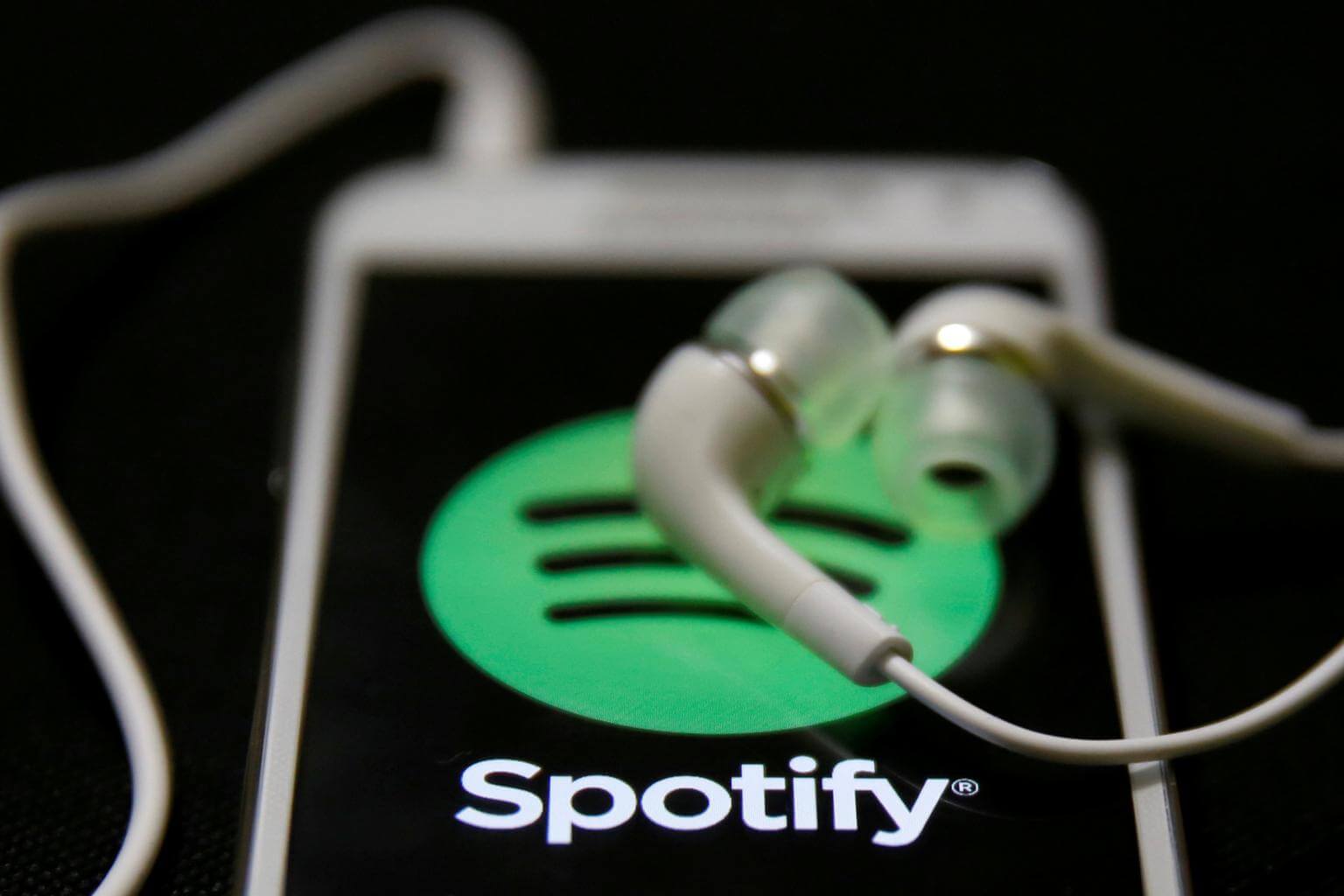Music sales climb for fourth year, thanks to streaming
Paid subscriptions and video streaming account for 68% of revenue increase
Sign up now: Get ST's newsletters delivered to your inbox

Streaming services such as Spotify and Apple Music proved the biggest driver of music sales in Singapore.
PHOTO: REUTERS
Music sales in Singapore have continued to climb, achieving the highest numbers in over half a decade - despite listeners increasingly opting not to buy music.
Streaming services such as Spotify and Apple Music proved the biggest driver of sales, raking in $15.77 million last year, according to data from Swiss-based International Federation of the Phonographic Industry (IFPI).
In particular, paid subscriptions and video streaming saw significant growth, accounting for 68 per cent of the total revenue increase.
On the whole, music sales surged by almost 30 per cent last year, totalling $27.9 million. This marks the fourth straight year of positive growth since 2014, when a spike in digital revenue helped revive the piracy-hit industry, which suffered four consecutive years of losses between 2010 and 2013.
Apart from streaming, an increase in performance rights income - from $4 million to $6.54 million last year - contributed to the rise in total revenue.
But despite the promising figures, the Singapore recorded music industry is still at less than a quarter of its all-time high of $118.7 million in 1993, said Mr Ang Kwee Tiang, IFPI's regional director for Asia. This is despite the fact that consumption of music is clearly higher than before, he added.
Mr Ang said this could be due to the "value gap" - between the value created by some digital platforms, like YouTube, from their use of music and what these platforms pay to those creating and investing in music.
In Singapore, music agencies feel the struggle, with many citing live performances and brand endorsements for music artists as their main sources of revenue.
"Streaming doesn't account for much revenue," said Mr Willy Tan, 39, founder of local agency Aging Youth Records, which manages home-grown artists such as electro-pop singer Jasmine Sokko.
And as listeners increasingly opt to stream rather than buy music, music ownership has taken a nosedive in past years. Last year, physical sales fell by over half in Singapore, plunging to $533,000, while digital downloads - which include downloads through digital media store iTunes - performed similarly poorly, falling by 25 per cent to $1.6 million.
The sole exception to this trend was the vinyl market, which saw significant growth of 9.7 per cent last year. However, it remains relatively small in Singapore, reporting sales of just over $55,000.
That said, owned music still has its fans among Singaporeans.
Nanyang Technological University (NTU) engineering undergraduate Charis Koh, 24, said the feeling of owning a physical copy is "just different". "It feels more valuable, more real. It's not just a piece of software, it's a collectible as well," said Ms Koh, who owns over 50 CDs.
Other users opt to buy music because although subscription costs are initially low, they can add up to substantial amounts over time. Spotify, for example, charges $9.99 a month for its premium service, while Apple Music charges $9.98.
"Eventually, it will cost more than platforms which charge a one-time cost, like buying an album on iTunes," said drummer Marcus Goh, 24, who plays in local math-rock band, Sine.
However, for most, the future still lies in streaming services, citing convenience and cost-effectiveness as reasons for signing up.
"I appreciate the curated playlists that Spotify offers, as well as user-generated ones," said Mr Aloysius Loh, 23, a philosophy undergraduate at NTU.
"It makes it much easier to discover new artists."


